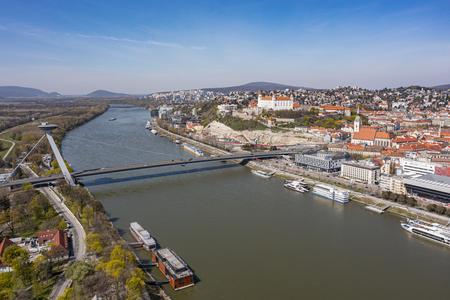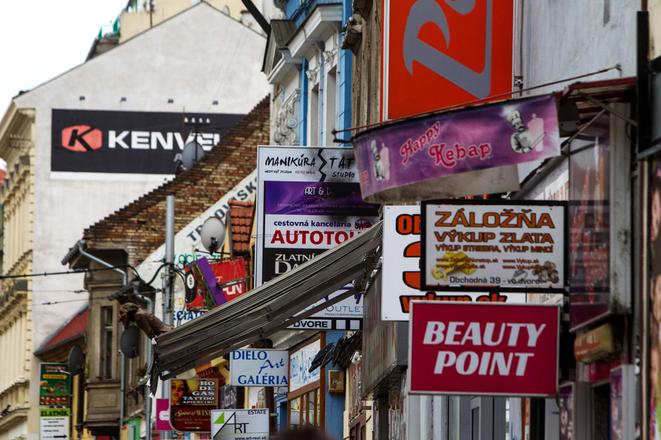The Metropolitan Institute of Bratislava (MIB) has drawn up new rules for ads in the capital. Bratislava authorities have previously taken measures to cut excessive outdoor advertising in the streets.
According to MIB, since 2019 more than 1,000 illegal ads have been taken down.
MIB calls its new manual on advertising regulations "a step towards Bratislava being a city in which residents are not disturbed by tasteless advertisements in public spaces".

A unified approach
The manual is named Principles and Standards of Outdoor Advertising and provides a clear set of rules on the placement of advertising on buildings, as well as citylights, billboards, small structures intended for displaying posters, among others. For each type of ad, the recommended size, placement, composition, material, colour, and shape are specifically listed.
"The placement of advertising in public spaces must have its own clear rules so that it does not degrade the quality of the space, cause disruption, or create obstacles for pedestrians," says Matúš Vallo, mayor of Bratislava.
"I am pleased that we have the first conceptual material in our hands, a guide to placing ads which is available to mayors, business and building owners."

Architecture before ads
According to the MIB, the proposed rules can improve places, such as Obchodná street, which are infamous for high levels of so-called 'visual smog'. Using the manual, business owners can check where to put the name of their establishment, what its design should look like, and what rules govern window posters and placement of menus for cafes and restaurants.
A business should have only one display with its name and its placement should match the design of the building as a whole. At public transport stations, a citylight should not obscure a traveller's view of an incoming vehicle or tram. The minimal distance between citylights should be 100 metres.
The manual also states that architecture has priority over advertisements. National cultural monuments are also specially protected, and no advertising can be placed on them.
"The main goal is placing ads in a reasonable density, of size, quality and visually acceptable design. Every ad should respect the environment in which it is placed and be adapted to it in its shape, character, material, colour, and content," says Roman Žitňanský, director of the Public Spaces Section at the MIB.
"High-quality visual communication has the potential to increase the quality of public spaces and thus contribute to a positive atmosphere in the city."
The manual is available in Slovak here.



 Visual smog on the Obchodná street in Bratislava. (source: SME - Vladimír Šimíček)
Visual smog on the Obchodná street in Bratislava. (source: SME - Vladimír Šimíček)